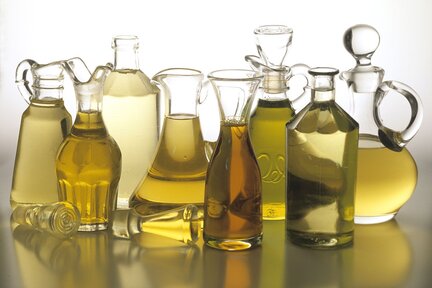The oils you need in your pantry and the ones to trash

Calorie-dense oils are a controversial (and sometimes confusing) topic among those new to natural health. Without knowing which oils to keep in your pantry and the ones to trash, it's easy to think that all of them aren't any good.
Although the 1990s and early 2000s are long gone, some still believe that eating fats creates "excess fat" on the body. In truth, this is a myth. Here are the oils that you need to include in your diet and why.
The oils to keep in your pantry
If you could only use two oils for the rest of your life, choose olive oil and coconut oil. There are many other options on the market, but these are the most prevalent healthy oils.
They're widely available even if you don't shop in health food stores. When shopping for oils, purchase monounsaturated or polyunsaturated fats high in omega-3. Unfortunately, not all healthy oils are created equally; many companies are cutting corners.
To be clear, make sure you buy organic products and do your research.
There's a reason why the carbohydrate and fat-dense Mediterranean diet is incredible for you - they include a diverse range of naturally sourced foods, including high-quality oils. Olive oil is scientifically proven to help reduce the risk of cardiovascular events.
In a world where cardiovascular-related disease is the number one cause of death worldwide, you should be worried about the quality of fats that you put in your body. For example, did you know that olive oil can help to improve your bone, skin, and brain health?
Unfortunately, some oils contain sulfates, pesticides, and other toxic contaminants. Do your research and read labels before you buy.
Coconut oil is a powerful fat that supports a healthy body composition, boosts energy, and improves HDL cholesterol levels. Many mistakenly believe that coconut oil is, in fact, bad for you, but this is another common myth.
Although it is a saturated fat, it's actually a medium-chain triglyceride. This means that the molecular structure is much shorter than other saturated fats - which are much longer chains, making them easier to break down within the body.
Its molecular structure creates a thermogenic effect within the body, which heats you, burning more calories and increasing your satiety. Again, make sure you only buy organic to avoid any unwanted toxic contaminants in your food.
Other healthy oils include:
- Avocado oil
- Macadamia oil
- Flaxseed oil
- Grapeseed oil
The oils to throw in the trash
Many non-organic oils may contain toxic contaminants. You should always buy organic and check the label for unwanted nasties and unnecessary added ingredients.
Commercial vegetable oils and partially hydrogenated oils are the worst offenders. These oils typically have more omega-6 than olive and coconut oils, which are higher in omega-3.
When you sit down to a meal at a restaurant, you have no idea how the chef is cooking your delicious meal. In most cases, they'll be using commercial vegetable oils.
These oils are proven to have between 0.56% to 4.2% trans fat content within them. You must avoid trans fats at all costs, as they're proven to cause chronic diseases such as diabetes, cardiovascular disease, and cancer. Always check the label when you're buying oils; if they are partially hydrogenated, they'll likely contain trans fats. Hydrogenation is used to change the composition of the oil to make it more convenient for you to use. But that convenience could cost you your life.
Often, the cheapest oils on the shelf are the worst for you. They're usually produced by companies cutting corners by adding toxic contaminants to mass-produce and profit from products proven to cause chronic illness.
Another great way to increase your omega-3s is through fatty acid supplementation or by eating organic (sprouted) nuts and seeds. But, when it comes to eating nuts and seeds ... just don't overdo it.
This is an excellent way to ensure you get the fats you need for a healthy life.
Sources for this article include:






